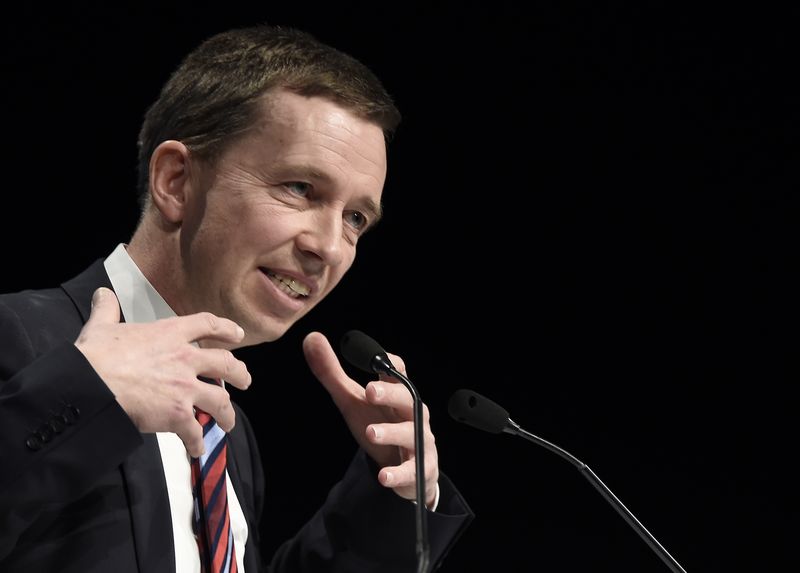By Erik Kirschbaum
BREMEN, Germany - The founder of the upstart Alternative for Germany (AfD)strengthened his control of the eurosceptic party that has been stealing votes from Chancellor Angela Merkel's conservatives with a withering attack on his co-leaders.
At a weekend party congress, Bernd Lucke also managed to end a power struggle at the top of the party, that has climbed to 7 percent in opinion polls. He persuaded a two-thirds majority of the 1,473 delegates to back his plan to dump his two co-leaders by December.
But his near-term victory in pushing aside rivals who have a strong appeal on the far right may cost the AfD in the long run, analysts said, because Lucke's scholarly style and criticism of euro zone bailouts is often lost on right-wing voters.
"Lucke doesn't represent both wings and won't win over the national conservatives on the far right," said Gero Neugebauer, a Berlin political scientist. "But the AfD seems to have stabilised itself for now and will remain a problem for Merkel."
The strengths and weaknesses of the two-year-old AfD were on abundant display at the three-day congress ahead of an important regional election on Feb. 15 in Hamburg, where the AfD hopes to win seats in a western state assembly for the first time after triumphing with about 10 percent in three east states in 2014.
A party its opponents disparagingly refer to as a group of "grumpy old men", the AfD spent hours squabbling about procedures and agenda before finally settling down to vote for Lucke's plan to switch from three leaders to a single leader.
But not before Lucke blasted the AfD's current "botched" leadership structure of part-timers: "We're not a bowling club or a rabbit breeding society," he said. He was criticised for that in testy debate and called a "narcissist" by one speaker.
Yet in Bremen the AfD managed to avoid fatal pitfalls that led to the demise of other upstart German parties. The AfD, whose ranks are filled with former CDU officials, matured here from a protest movement to a professionally led organisation.
"We put the AfD on a winning track," said a beaming Lucke.
His co-leader Frauke Petry and Brandenburg leader Alexander Gauland, who wanted to push the AfD further to the right with a law and order focus, had attacked Lucke as a "control freak". But they grudgingly went along with the changes.

(writing by Erik Kirschbaum; Additional reporting by Michelle Martin; Editing by Stephen Powell)